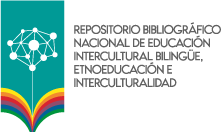Por favor, use este identificador para citar o enlazar este ítem:
http://repositoriointerculturalidad.ec/jspui/handle/123456789/4134Registro completo de metadatos
| Campo DC | Valor | Lengua/Idioma |
|---|---|---|
| dc.contributor.advisor | Montaluisa Chasiquiza, Luis Octavio | - |
| dc.contributor.author | Tibanlombo Azogue, Celida Margarita | - |
| dc.date.accessioned | 2018-08-09T22:29:12Z | - |
| dc.date.accessioned | 2020-04-29T17:04:55Z | - |
| dc.date.accessioned | 2020-05-04T03:26:33Z | - |
| dc.date.available | 2018-08-09T22:29:12Z | - |
| dc.date.available | 2020-04-29T17:04:55Z | - |
| dc.date.available | 2020-05-04T03:26:33Z | - |
| dc.date.issued | 2018-08 | - |
| dc.identifier.other | http://dspace.ups.edu.ec/handle/123456789/15930 | - |
| dc.identifier.uri | http://8.242.217.84:8080/xmlui/handle/123456789/4134 | - |
| dc.description | The objective of this thesis work is to determine how vital is the Kichwa in the community and the attitude of the population toward the language. In addition, seeks to specify the role of this language and other elements in the construction of their identity. For the present investigation, the instruments were taken; questionnaires, interview, review of books and website, where we could collect information on the problem detected in the Tingo community, with the help of leaders and teachers of the educational center "Vicente Ramón Roca" With this data it was possible to analyze that the majority of the community does not speak the language, for this reason they do not write the Kichwa language, it is demonstrated that there is a devaluation of the Kichwa language in the community. The new generation has a negative attitude toward the mother tongue, it is necessary to generate the proposal that encourages the use of Kichwa in the aforementioned community, which requires actions to get the community aware of regaining their own identity. | en_US |
| dc.description.abstract | El presente trabajo de titulación, tiene por objetivo determinar cuán vital está el kichwa en la comunidad y la actitud de la población hacia a la lengua. Además, busca precisar el rol que tiene esta lengua y otros elementos, en la construcción de su identidad. Para la presente investigación, se usaron los instrumentos; cuestionarios, entrevista, revisión de libros y sitios web, donde pude recoger la información del problema detectado en la comunidad el Tingo, con la ayuda de dirigentes y docentes del centro educativo “Vicente Ramón Roca” Con estos datos obtenidos se pudo analizar que la mayor parte de la comunidad no habla el idioma, por tal motivo no escriben la lengua kichwa, se demuestra que existe desvaloración de la lengua kichwa en la comunidad. La nueva generación tiene actitud negativa hacia la lengua materna, es necesario generar la propuesta que fomente el uso del kichwa en la comunidad antes mencionado, por lo cual se requiere realizar acciones para conseguir que la comunidad concientice en recuperar su propia identidad. | en_US |
| dc.language.iso | spa | en_US |
| dc.publisher | Universidad Politécnica Salesiana – UPS | es_ES |
| dc.rights | Atribución-NoComercial-SinDerivadas 3.0 Ecuador | * |
| dc.rights | openAccess | en_US |
| dc.rights.uri | http://creativecommons.org/licenses/by-nc-nd/3.0/ec/ | * |
| dc.subject | EDUCACIÓN INTERCULTURAL BILINGÜE | es_EC |
| dc.subject | ENSEÑANZA - APRENDIZAJE | es_EC |
| dc.subject | DIGLOSIA | es_EC |
| dc.subject | LENGUAJE NATIVO | es_EC |
| dc.subject | KICHWA | es_EC |
| dc.subject | GUARANDA | - |
| dc.title | Estudio sociolinguístico de la vitalidad del kichwa. Análisis de caso en la comunidad el tingo, parroquia Simiatug, cantón Guaranda | en_US |
| dc.type | bachelorThesis | en_US |
| dc.ups.carrera | Educación Intercultural Bilingüe | - |
| dc.ups.sede | Sede Quito | - |
| Aparece en las colecciones: | 2.55 Lingüística | |
Ficheros en este ítem:
| Fichero | Tamaño | Formato | |
|---|---|---|---|
| UPS-QT13089.pdf | 1,45 MB | Adobe PDF | Visualizar/Abrir |
Este ítem está sujeto a una licencia Creative Commons Licencia Creative Commons

